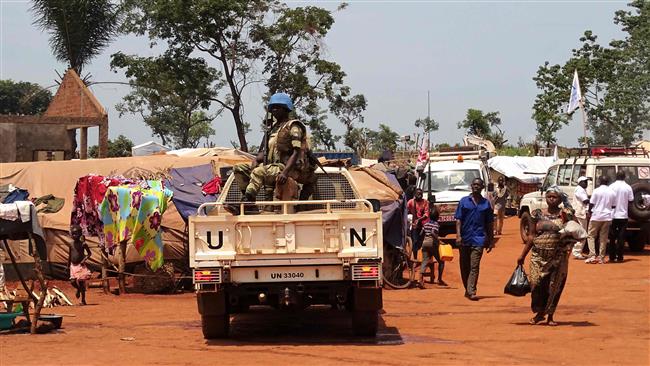
RNA - At a UN briefing on Monday, the world body’s Under-Secretary-General and Emergency Relief Coordinator Stephen O’Brien said renewed fighting in the CAR are “the early warning signs of genocide” there.
He was speaking following his recent trip to the CAR and the Democratic Republic of Congo.
“We must act now, not pare down the UN’s effort, and pray we don’t live to regret it,” he said.
Some 180,000 people have been driven from their homes this year, bringing the total number of the displaced in the Central African Republic to well over half a million, he said.
O’Brien said it was time to authorize an increase in troops and police serving in the UN peacekeeping force in the CAR, known as MINUSCA, to enable the mission to “deliver on its critical protection mandate.”
UN peacekeeping chief Jean-Pierre Lacroix last week said he was considering sending a request to the UN Security Council for more troops for MINUSCA.
In 2013, the country fell into chaos when then President Francois Bozize was ousted by the mainly Muslim Seleka rebel alliance.
The ouster caused a series of deadly reprisal attacks between the Seleka rebels and the Christian militia known as anti-Balaka.
The United Nations has 12,350 troops and police on the ground to help protect civilians and support the government of President Faustin-Archange Touadera, whose election last year helped significantly contain the inter-communal violence.
In recent months, the country has, however, witnessed a fresh wave of fighting between the armed groups.
In May, some 300 people were killed and 100,000 displaced in the CAR in the worst flare-up since Touadera’s election.
Locals say MINUSCA forces have failed to help stop the violence and provide security in the conflict-torn country.
Nine MINUSCA peacekeepers have been killed in the CAR since the beginning of this year, raising alarm that the country is sliding back into chaos.
“The risk of a relapse into another large-scale humanitarian crisis is imminent,” said O’Brien.
847/940